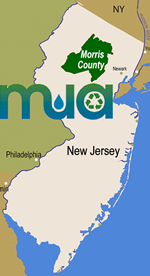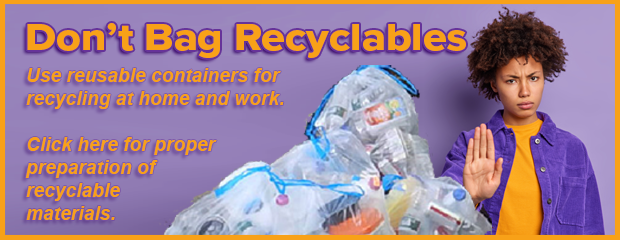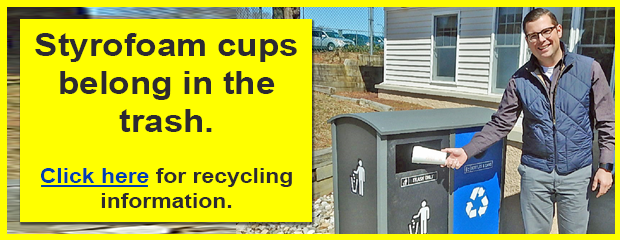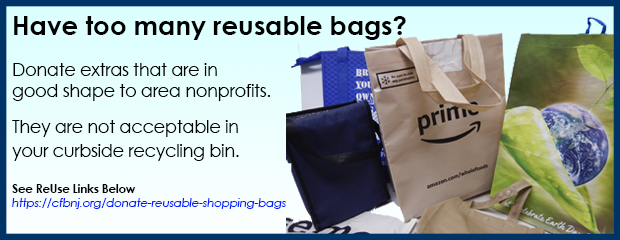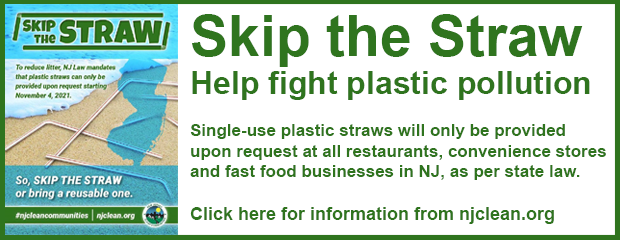Transfer Station Info (Tip Fee $113.00/ton)
- Mt. Olive Mon-Fri 7:30am-3pm; Sat 7:30am-11am
- Parsippany Mon-Fri 7am-3pm; Sat 7:30am-11am
- No Rental Trucks
- Payment by Account, Check, Credit Card. No Cash
Americans send up to 40% of edible food to landfills annually. When food is wasted, all the resources that went into the production or growth, transportation, and preparation of the food are wasted as well. This includes water, pesticides, animal feed, labor, nutrients, land, money, and fuel. Wasted food contributes to a warming climate not only by contributing to methane emission from landfills, but also because of the emissions that were released to produce it. Food production has an enormous environmental impact and yet tremendous amounts of food are thrown away every day by businesses, schools, and individuals.
The MCMUA is embarking on several initiatives to reduce the food wasted in Morris County and encourages you to do your part. Read the MCMUA's 2023 SWOT - strengths, weaknesses, opportunities, and threats - analysis and report related to Morris County's food waste marketplace and landscape.
Food waste thrown in the garbage ends up in a landfill producing a potent greenhouse gas called methane as a by-product of its anaerobic breakdown. Methane traps heat in the atmosphere and contributes to global warming, which perpetuates food scarcity as well as environmental and health issues worldwide. Food waste is the single most common material landfilled and incinerated in the United States and represents 8% of human-generated greenhouse gas emissions each year.
It is estimated that 40% of all food in America is never consumed and 126 billion pounds of food waste is produced per year. Essential nutrients, water, and energy are being lost throughout this wasteful supply chain.
Food Waste and New Jersey
There are two primary laws regarding food waste management in New Jersey:
- The Food Waste Reduction Law (2017) which requires NJDEP to develop a plan to reduce food waste in New Jersey by 50 percent by 2030;
- The Large Generator Food Waste Recycling Law (2020), which requires certain large generators of food waste to separate and recycle it.
Benefits of reducing food waste
- Saves resources (food, water, energy, labor, money, etc.)
- Reduces greenhouse gas emissions
- Reduces methane from landfills
- Returns nutrients to soil
- Supports a circular economy
- Helps increase food access
Food donation resources
Food rescue and donation helps redirect wholesome food to human consumption rather than the landfill. Food donations are protected from liability by the Good Samaritan Law.
- Food pantries
- Resources for directing excess food to those who need it.
- More Meals Less Waste
- Share My Meals: Food recovery coalition operating in Morristown and other areas. It receives excess food from food establishments and donates it to families and community partners
- Resources for gardeners and farmers to donate excess crops
Fighting Food Waste:
Tips for reducing food waste
- Before grocery shopping, check your pantry and make a shopping list consisting only of items you need or will consume before they spoil.
- When grocery shopping, stick to the list.
- Prioritize using perishable food items first.
- Understand date labeling on food items. Most are quality or inventory indicators and not safety indicators.
- Store foods properly to extend their shelf life.
- Freeze, can, or preserve excess food.
- Utilize scrap foods instead of throwing them away. Here are some recipe ideas:
External resources for food waste prevention
- Savethefood.com : Resource for meal prep (recipe & portion guides), innovative food use, and waste reduction ideas
- Food Loss Prevention Options from the EPA
- NJDEP Food Waste Toolkit
- ReFED is working across the food system to cut food loss and waste.

